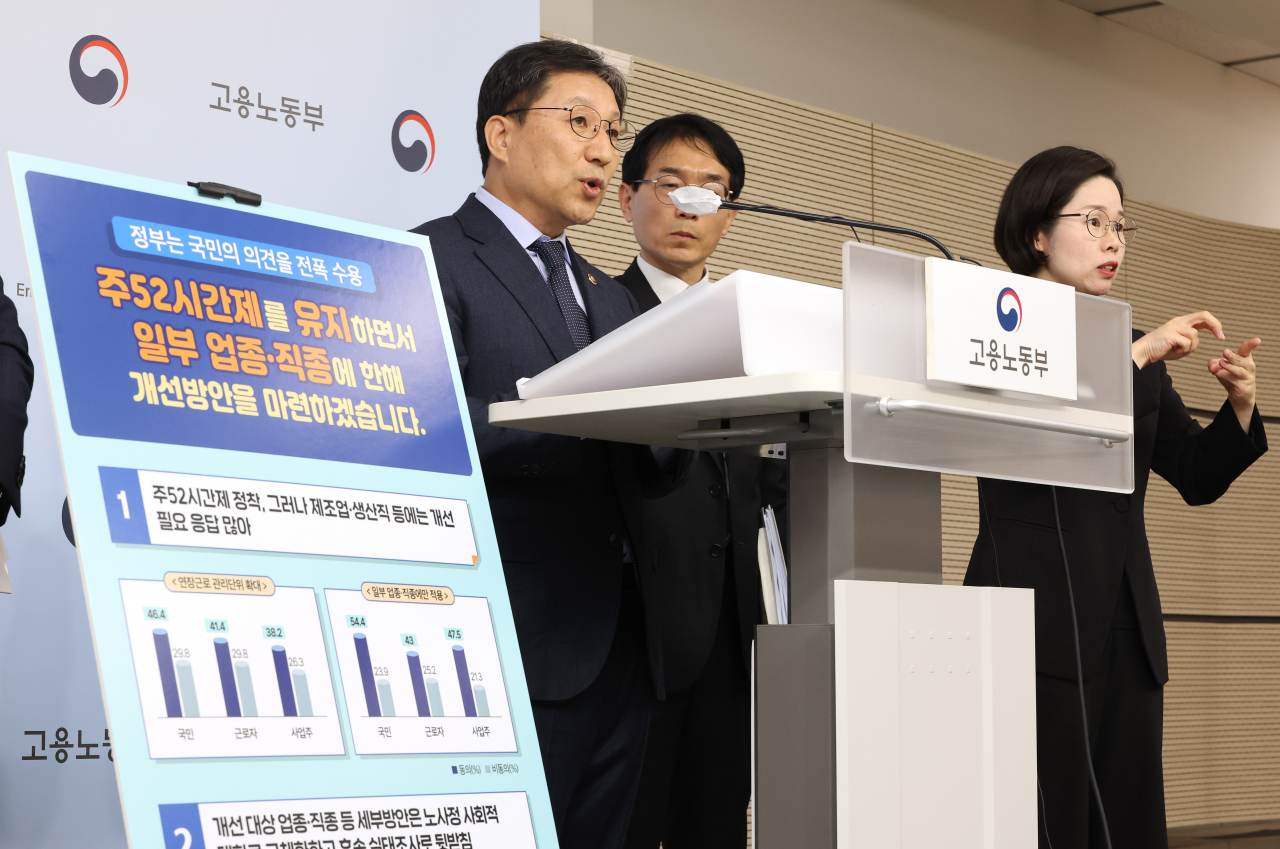
Korean business groups were not fully happy with the government's proposal to mostly retain the existing 52-hour workweek system on Monday, calling for further reforms.
The Ministry of Employment and Labor proposed to maintain the current workweek system while applying complementary measures for some industries that require greater flexibility in working hours.
The Korea Enterprises Federation, in particular, strongly criticized the proposal.
“The proposal is not as comprehensive as the one released in March,” KEF said in a statement.
In March, the ministry faced severe criticism from workers for proposing to increase the maximum workweek to 69 hours during weeks with heavy workloads. The ministry said at the time that this would give employers more flexibility and allow workers to take longer vacations later on.
At the time, many workers claimed that such a change would primarily favor employers and only end up extending working hours for ordinary workers.
The country currently has a maximum 52-hour workweek, which was introduced in 2018 by the Moon Jae-in government to reduce the maximum week from 68 hours.
In its statement, the KEF also called on the government to accelerate efforts to reform the current workweek system, as a majority of Koreans want the maximum number of overtime hours to be extended.
The KEF was referring to results of a survey conducted by the ministry with 6,030 workers, employers and the general public.
The survey results announced Monday found that 54.9 percent said the existing system does not reflect the characteristics of industries like manufacturing, construction, medical, research and engineering.
The Federation of Korean Industries’ head of economic research division Choo Kwang-ho also expressed concerns regarding the new proposal, saying, "Applying a flexible working hour system to only certain industries and occupations while retaining excessively strict working hour limits could constrain the government's efforts to improve the situation."
The trade sector also said that change to the 52-hour workweek system is necessary.
“Firms have been struggling to meet delivery and production requirements,” Kim Byung-yu, an official of the Korea International Trade Association, said in a statement.
KITA’s recent data revealed that South Korea's share in the global export market decreased from 3.23 percent in 2017 to 2.59 percent in the first half of this year. It also showed that 700,000 jobs disappeared during the period.
The trade lobby group attributed the decline to the implementation of the 52-hour workweek, which has resulted in reduced productivity and export competitiveness, leading to a decrease in job opportunities.





